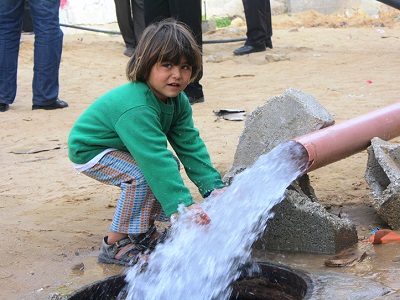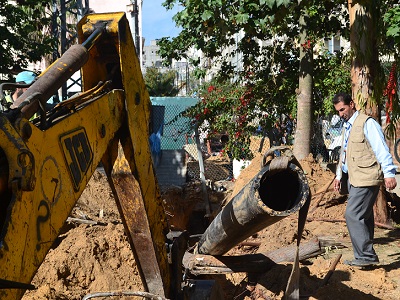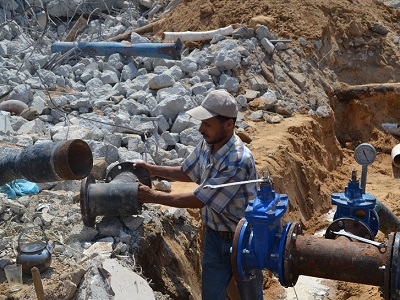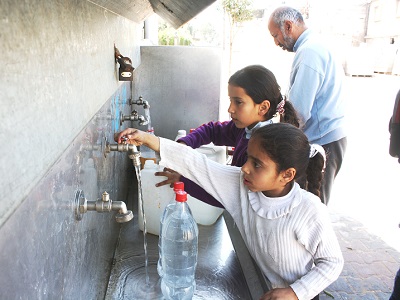
By Yousef M. Aljamal – Gaza
The Gaza Strip, a 365-square-kilometer-costal enclave, is home to one of the most densely populated communities in the world, where water has become a sacred source.
The nearly two million Palestinians in Gaza have 3% of water fit for human consumption, according to the latest statistics. The future of water, and the reality for Palestinians seems dim.
Mazin Gunaim, head of the Palestinian Water Authority said in a press conference held in Ramallah on May 5 2016 that “the aquifer in the Gaza Strip will not be fit for human use at the end of 2016. The portion of water per person per day is 90 liters, which does not meet international standards, and much of it is polluted.”

The United Nations’ report, Gaza in 2020: A liveable Place, published in August 2012 stated: “Today 90% of water from the aquifer is not safe for drinking, without treatment. Availability of clean water is thus limited for most Gazans with an average consumption of 70 to 90 litres per person per day (depending on the season), below the global WHO standard of 100 litres per person per day.”
According to the Palestinian Water Authority, some 10,000 Gaza residents do not have taps in or near their homes, and about one million people do not have continuous access to water.
“The whole water system needs to be improved. There is a serious lack of water which is undrinkable in most cases,” Bisan Aljadili, a student at the Islamic University of Gaza, from Alnusierat refugee camp, told the Palestine Chronicle.

The Israeli occupation also denies entry of equipment and supplies needed for the construction, maintenance and operation of water and sanitation facilities to the besieged Gaza Strip.
The lack of water supply is one more tragedy the Palestinian people suffer. Yet, they have no choice but to adapt to the situation in order to survive, amid the tough conditions in the Gaza Strip.
“There are three major problems: the scarcity of water and the over use of the aquifer, the pollution of water by nitrates, and the seawater intrusion to the groundwater,” Bilal Alqidra, a water engineer from Khan Younis, told the Palestine Chronicle.

“We don’t have water desalination; sewage water is not treated, in addition to the issue of lack of electricity. Even clean water which people purchase is not well monitored by the relevant authorities. Vehicles used to distribute clean water is not clean enough,” he added.
The Coastal Municipalities Water Utility, which runs several water projects across the Gaza Strip, has a message to share with the world: “Remove the blockade imposed on the water sector and improve energy provided to feed the water system. The blockade and power cuts negatively impact the implementation of water projects needed to improve water quality in the Gaza Strip.”
(All photos are supplied by the The Coastal Municipalities Water Utility, CMWU.)
– Yousef M. Aljamal is the Correspondent of the Palestine Chronicle in the Gaza Strip.





